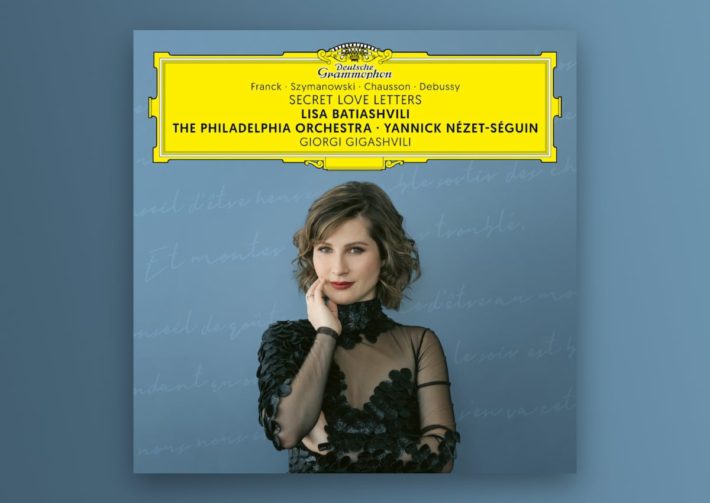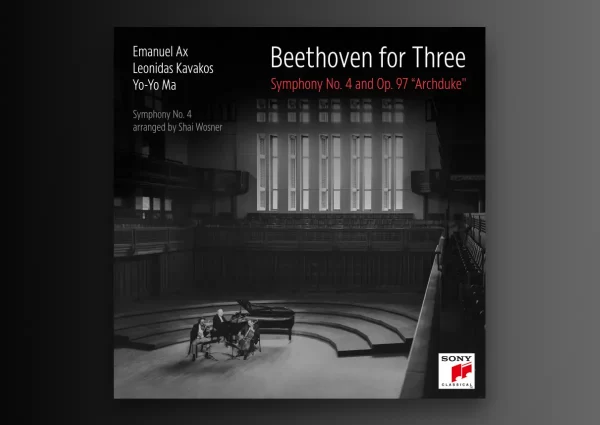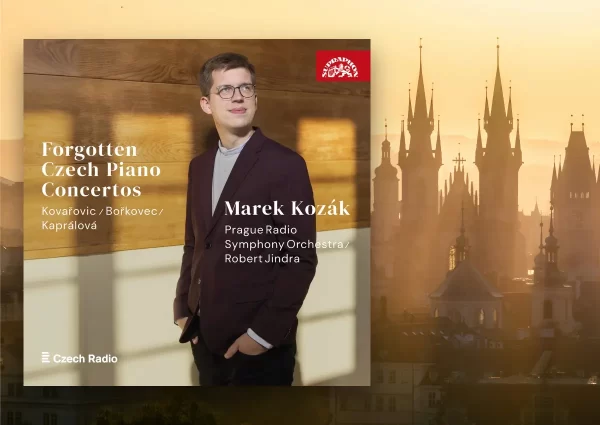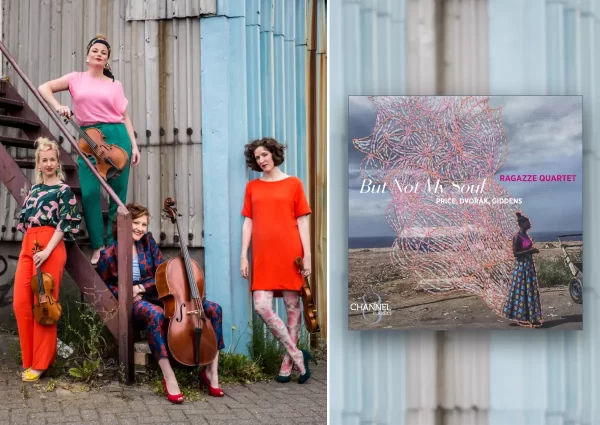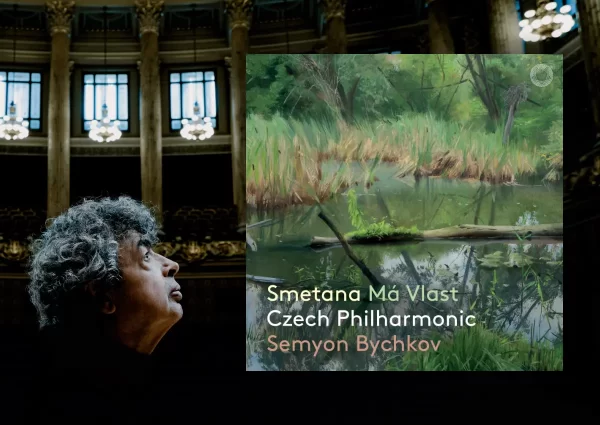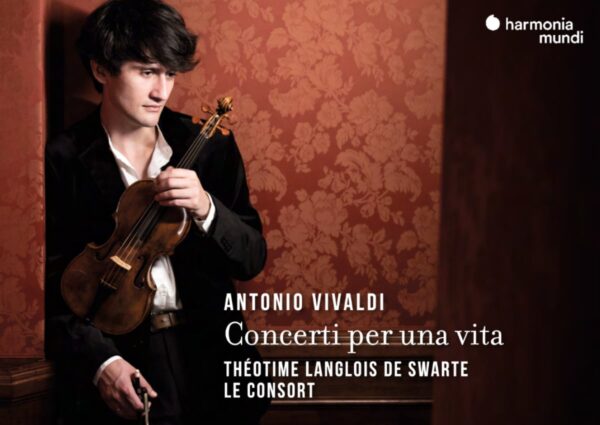Lisa Batiashvili’s new release is a collaborative effort with both the Philadelphia Orchestra/Yannick-Nézet-Séguin and pianist Giorgi Gigashvili. While her City Lights (2020) focused on a more personal journey, 2022’s Secret Love Letters describes the human emotional condition: works by Frank, Chausson, Symanowski, and Debussy describe forbidden love.
The album opens with César Franck’s well-loved Violin Sonata in A major: the work’s intimate dialogue between violin and piano reveals the many facets of love, ranging from tender charm to riveting passion. The duo does a fine job bringing these perspectives to light. The introductory moments of the Allegretto ben Moderato (track 1) already show plenty of nuance from Batiashvili: her vibrant tone quality and fluid phrasing vividly resemble a human voice. The first few notes are a beckoning whisper and a foreshadowing of what’s to come: the buildup of tension is well-timed when the bright E major arrives at 1’36”. Gigashvili’s performance, too, is solid: in addition to aligning seamlessly to the violin’s lines throughout, he adds depth to the big moments and responds sensitively to Franck’s harmonic color changes.
The slow movement (track 3) again features excellent musicality from the duo. The piano‘s opening is rich yet supple with the violin taking over in a similar fashion. What that sets us up for, however, is a beautiful contrast moments later: Batiashvili’s playing exudes a sense of mystery and fragility but also delivers the right amount of conviction in the climactic moments. Both performers are at ease with each other, which helps underscore the often improvisatory nature of the Fantasia. As for the concluding Allegretto poco mosso (track 4), the pace is a little too brisk for me, but the optimism, joy, and excitement are not at all lacking. Joshua Bell and Jeremy Denk have a fine recording that gives us a little more breathing room between phrases.
Related Posts
- Review: 12 Stradivari – Janine Jansen, Antonio Pappano
- Review: “Journey Through a Century” – Sueye Park, Violin
- Review: Transmission – Edgar Moreau, Cello
Karol Szymanowski was one of three major Eastern European composers born in the late 19th century (the others being Béla Bartók and Igor Stravinsky). All three were known for nationalistic characteristics in their music, though Szymanowski took a more oblique route in his Violin Concerto No. 1: the work’s inspiration is a poem by Tadeusz Micinski, a member of the Young Poland movement (of which the composer was also a part). Szymanowski’s musical language is programmatic, flavorful, and experimental as is the form, which bucks the convention of separate movements. The orchestra helps paint a vivid picture – in the first movement, for instance, the strings remind us of rustling leaves while the sprightly flutes recreate the poem’s reference to birds. A dichotomy soon becomes present between the capricious, nervous character and the emergence of a lush, longing one we hear in the violin (2’14” onwards). Batiashvili preserves the delicacy of the lines beautifully through her silvery tone though on occasion, I felt she could have tapped a little more into the elements of sweeping Romanticism when they appear.
Virtuosity is on display in the Vivace Scherzando (track 6): the soloist’s faultlessly even double stops deliver clarity and control. The angular character of the faster sections is nicely offset by moments like 0’26”, where she maximizes the long lines with her legato and lovely slides. The Tempo Comodo (track 7) introduces new textures from the tambourine and again references the relationship between enigmatic suspense and romantic longing. Again, I felt some of the more emotionally charged moments could use more emphasis, but Batiashvili makes up for that with a dynamic and convincing cadenza.
I found the sound engineering in the Franck good in how clearly it grasped both the violinist’s and pianist’s nuances; at times, though, the mic placement seemed a bit close. It would have been nice for the sound to have some more space to travel. The orchestral works do give us that space as well as a well-managed balance that prevents the ensemble from overpowering the soloist’s sensitivities.
This is a fine artistic effort from Batiashvili and all the performers. The choice of works is both well-rounded and refreshing, making for a wonderful listening experience.

Secret Love Letters
Lisa Batiashvili, Violin
Deutsche Grammophon, CD DG 4860462
Recommended Comparisons
Read more classical music reviews or visit The Classic Review Amazon store
Follow Us and Comment:
Get our periodic classical music newsletter with our recent reviews, news and beginners guides.
We respect your privacy.

